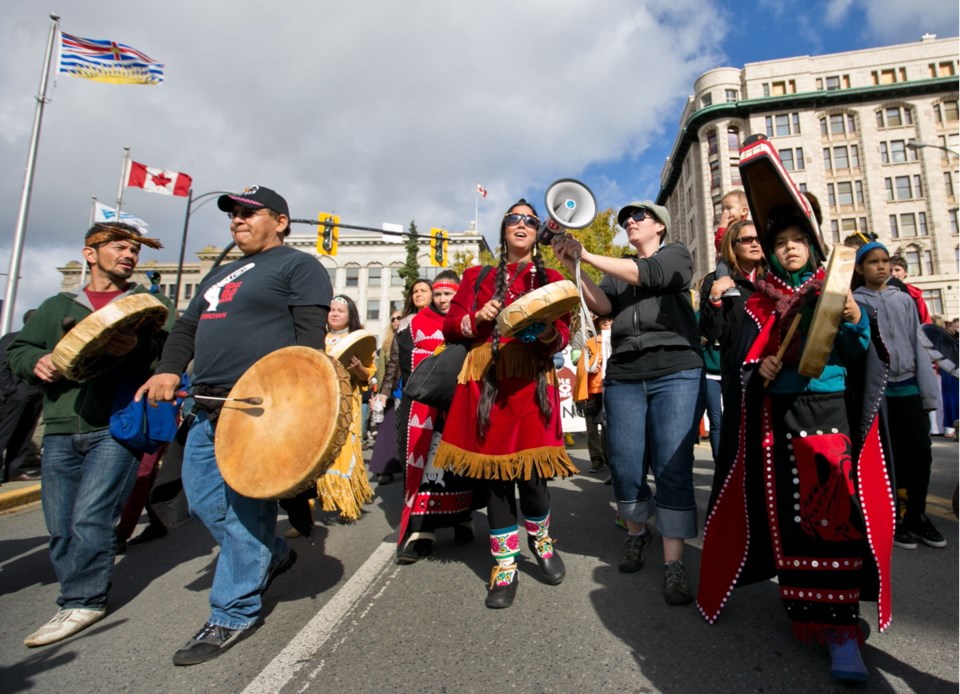Anti-pipeline sentiments and the Idle No More movement were at the forefront Monday as about 300 people marched to the legislature from Centennial Square.
Once there, the crowd took part in what organizers called “mass public civil-disobedience training,” for future action against pipeline proposals or other activity that raises environmental concerns.
The training is being done “so that we can have the skills to stop dirty energy like pipelines and tankers in its tracks,” said spokeswoman Kelsey Mech, 21, who also chairs the University of Victoria Students’ Society.
“And we’re here to send a really strong message to [Premier] Christy Clark and [Prime Minister] Stephen Harper that we’re saying ‘No’ to these types of resource-extraction projects.”
Mech said marchers made a point by carrying an inflated black tube that represented a pipeline.
“We’re actually bringing Christy Clark a fake pipeline because we know that she will never get a real one.”
Mech said the civil-disobedience training deals with techniques, such as staying calm and respectful in tense situations. Still, it can lead to arrest in some cases, she said.
The training could help bring people together, said Eugene Boulanger, a 26-year-old from the Northwest Territories who took part in the march.
“So when we’re talking about blockades or direct action, civil disobedience, we’re talking about solidarity. We’re talking about collaborating across cultural barriers, we’re talking about evolving from these ways of thinking that we’ve been subjected to, that we’ve grown up in.”
Boulanger said he wasn’t sure how far he would go personally with civil disobedience, or if he would risk arrest.
“Civil disobedience for me is a very scary thought.”
Still, the issues involved make it important to take a stand, he said.
About 50 other events linked to Idle No More, a grassroots movement based on First Nations’ rights, were planned in Canada and around the world Monday to mark the 250th anniversary of the Royal Proclamation of 1763, a British document that dealt with the aboriginal treaty process and rights to land.
The rally stemmed from a four-day gathering in Victoria called PowerShift B.C., a youth-oriented initiative focused on climate-change and environmental issues that wrapped up Monday.
Most of the event’s workshops and sessions were held at the University of Victoria.
Mech said PowerShift B.C. was the largest-ever assembly of young people in B.C. to look at climate change, with more than 1,000 participants from around North America.
“About 500 to 600 youth attended the entire weekend,” Mech said.
> 250th anniversary of Royal Proclamation marked, B4



